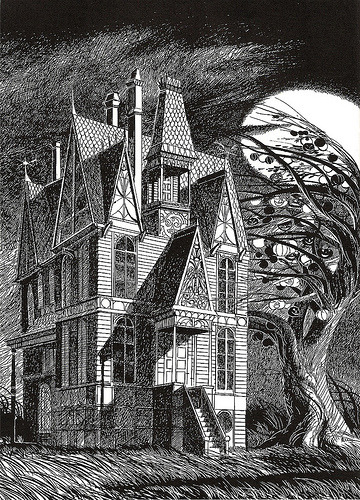In honor of Halloween, I offer 10 horror stories in two sentences or
less.
- My husband and two small children died in a mysterious fire. No matter how many new clothes I buy, no matter how many times I shower, strangers still ask me why I smell like smoke.
- Sometimes, through the baby monitor in the middle of the night, I can hear my identical twin daughters talking excitedly to each other in their special “twin language.” If only one of the twins hadn’t been stillborn.
- “Daddy fly!” my daughter gaily exclaims, as she pushes me over the edge of the cliff.
- I keep getting texts from my daughter, asking me to pick her up from school. She died two weeks ago in a school bus crash.
- I’m grateful for my transplanted eye, don’t get me wrong. But I’ve also learned to keep it closed when driving; otherwise I keep seeing a gigantic tractor-trailer skidding out of control towards my car.
- My daughter has started talking in her sleep. According to the professors at the local university who have listened to the tapes, she’s speaking ancient Sumarian.
- I woke up to the sensation of a dog jumping into my bed and lying down next to me. I wish I had a dog.
- One day I finally asked by my usually hyper-responsible teenage daughter why she’s so often late getting ready for school in the morning. “The grey lady who comes into my room at nights sometimes hides my things,” she explains, apologetically.
- Don’t you hate it when you unplug your phone and it rings anyway?
- I realize everyone’s looking at me in horror, but I don’t see what the big deal is. Thanks to modern medicine, pretty much anything can be reattached these days.
